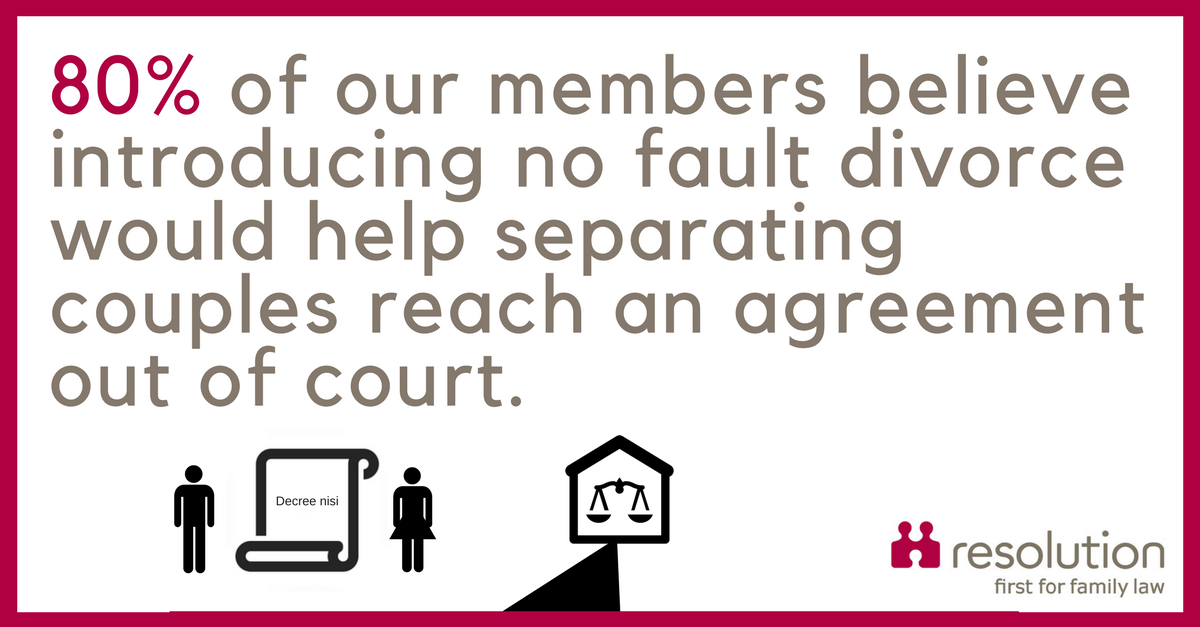Ending the blame game

Good Divorce Week 2018- ending the Blame Game and putting children first.
It’s not uncommon to hear people talk about children coming from a “broken home.” But when parents separate, if they deal with their separation issues well, children will maintain a strong sense of a family intact, albeit a family that has changed shape.
We know from research that children will usually go through a bereavement process about their sense of loss when their parents separate, but if the couple recovers then the children will too.
What we also know is that prolonged conflict between separating and separated parents causes children harm and that this harm can be global (emotional, physical, educational, social) and long term: who wants to think of their child as an adult dreading their wedding day because they are going to have to manage their still hostile divorced parents at the wedding?
In a 2014 ComRes survey of 14-22 year olds:
- 19% said they didn’t get the exam results they were hoping for
- The majority (65%) say that their GCSE exam results were affected while 44% say A-levels suffered
- Almost a quarter (24%) said that they struggled to complete homework, essays or assignments
- More than one in 10 (11%) said they found themselves “getting into more trouble at school, college or university,” with 12% confessing to skipping lessons
- 14% of the young people surveyed said they started drinking alcohol, or drinking more alcohol than previously, while almost three in ten (28%) said that they started eating more or less than previously
- 13% admitted to experimenting, or thinking about experimenting with drugs as a result of their parents’ break-up
- 32% of respondents said one parent tried to turn them against the other
- More than 1 in 4 (27%) said their parents tried to involve them in their dispute
- Almost 1 in 5 (19%) saying that they completely lost contact with one or more grandparent.
There are over 100,000 divorces in England and Wales each year and no one sets out to hurt their children when they contemplate ending a relationship. Currently, divorce law works unhelpfully for couples needing and wanting to do a good job of respectfully saying goodbye to each other as partners and hello to each other as parents.
The current law says unless you have been separated for two years with consent, or five years without, you have to divorce on the grounds of adultery or behaviour. In 2016, the majority (60%) of divorces in England and Wales were granted on adultery and behaviour.
Divorce is always difficult, but having to show fault can increase the conflict between the couple and make it more difficult to sort out child and financial arrangements. 71% of the population agrees that no-fault divorce is urgently needed to protect the long-term interests of children.
Without wanting to trivialise it, lawyers refer to it as ‘the blame game,’ but one that can have very serious consequences for the couple and any children they might have. Urgent reform is needed to remove blame from the process to reduce the negative impact of conflict on children.
Good Divorce Week beginning on Monday 26th November aims to provide practical help, highlighting ways for separating parents to put their children’s needs first, as well as calling on the government to urgently remove blame from the divorce process.
As 200,000 people divorce each year in England and Wales, an overwhelming 79% of the public support measures that would remove blame from the divorce process, with 71% believing change is urgently needed to reduce the negative impact on children.
David Gray’s family solicitors are all members of Resolution and support Good Divorce Week. Resolution members are committed to reducing conflict, agreeing to a non-confrontational way of working that puts the best interests of children first. The team offers all methods of dispute resolution to make sure that family clients’ and their families’ unique needs are best met.
Contact Louise Law on 0191 232 9547 ext. 1914 in confidence if you want to talk about your situation.



